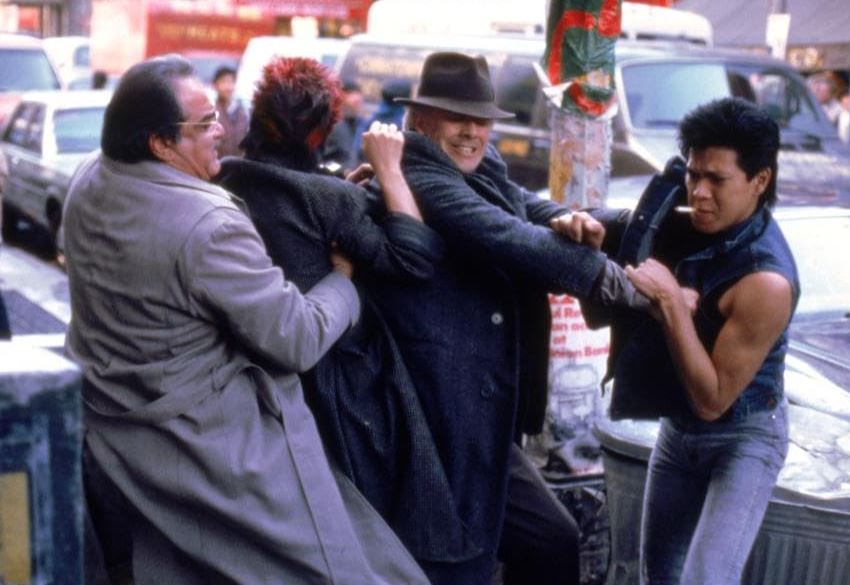
Synopsis: ‘Chinatown, it’s a different scene/There are people there, they are so obscene’
Director: Michael Cimino
Cast: Mickey Rourke, John Lone, Ariane, Raymond J. Barry, Caroline Kava, Dennis Dun, Leonard Termo
You got any idea what it’s like to scale the heights and then plunge into a shit pit as a fair chunk of the movie-going western world watches and laughs?
Nah, me neither.
But Cimino did just that. As a writer he contributed to the fantastic Magnum Force and Outlaw Josey Wales, got his first shot at directing with the OK Clint Eastwood vehicle Thunderbolt and Lightfoot, and then knocked one out of the park with The Deer Hunter. I have little idea why this classic works. There’s not much action while spending the best part of an hour at a wedding sure does seem like a self-indulgent mistake, but that’s one of the beauties of art – sometimes the rules can be massaged, bent or broken to allow something extraordinary into the world. I will never tire of seeing De Niro turning the tables on his Vietnamese captors, I will always be enthralled by that epic Russian roulette faceoff in a Saigon gambling den, and The Deer Hunter will never die. Full stop.
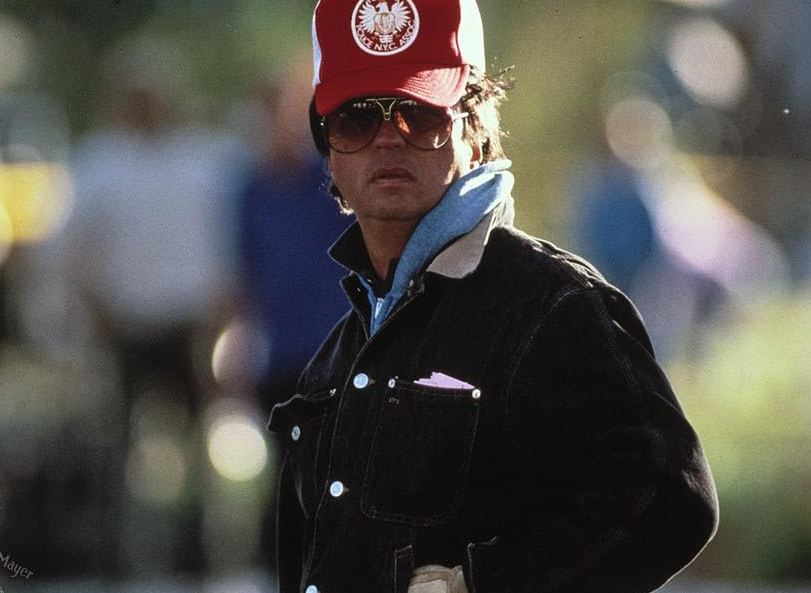
Cheers, Michael.
But then came the dancing and roller-skating epic Heaven’s Gate during which the golden boy lost his shit and flung it all over the audience. With his reputation in tatters it was five long years before we heard from Mr. Cimino again.
Was it worth the wait?
On paper, no. He might have brought Year of the Dragon (co-written with Oliver Stone) in on time and budget, but it tanked. That meant two box-office flops in a row. It was also widely condemned for its perceived racism against Chinese-Americans, leading to reviews that were as scathing as the Gate debacle, placard-waving protests, a host of Razzie nominations, and fears its unflattering portrayal of the New York neighborhood would drive tourists away.
Forty-odd years have passed since its premiere and Dragon is slowly gaining cult status. I wouldn’t call it a good film, but it’s a fun, fast-paced watch and I do admire the way the no doubt shaken Cimino refused to cough up something bland and safe. Indeed, his fourth directorial effort is full of violence, full frontal nudity, profanity and button-pushing issues, a fine example of The Kind of Movie That Wouldn’t Get Made Today.
Good on you, son.
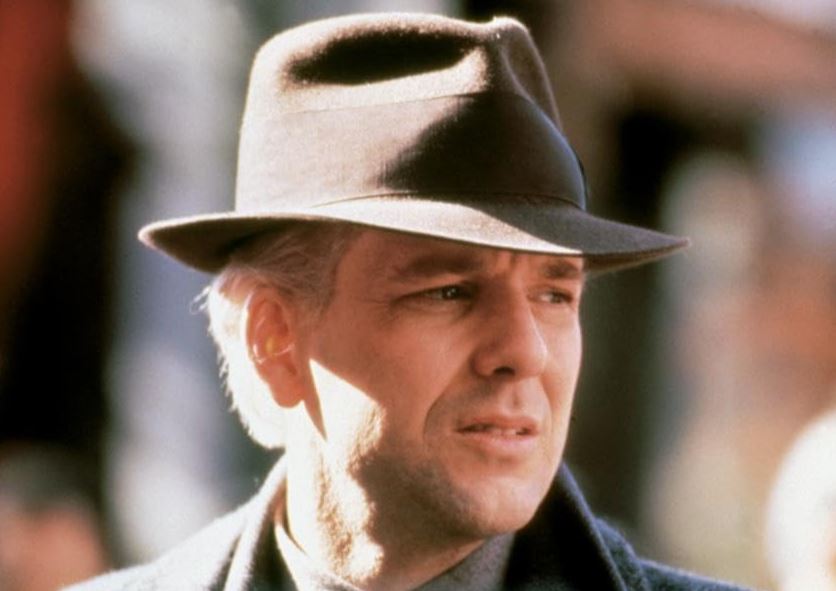
Polish-born Vietnam vet Captain Stanley White (a way too young Rourke) is the most decorated cop in the Five Boroughs. He’s also permanently angry and obnoxious, perhaps not the best qualities to possess when put in charge of cleaning up Chinatown. His lack of diplomacy is immediately shown when he meets some of the Mob bosses at a tense sit-down. “I’m tired of all this Chinese this and Chinese that,” he tells them. “You people think gambling, extortion, corruption are kosher coz it’s a thousand years old. Well, all this thousand-year-old stuff is a lot of shit to me. It’s America you’re living in and it’s two hundred years old so you’d better get your clocks fixed. You’re not special and you’re not beyond the law anymore than the Puerto Ricans or the Polacks.”
The top brass are appalled at Stanley’s blunt approach, but he’s not a career cop and doesn’t give a fig about his pension. He simply wants to get the job done, deciding the best way to do this is to sink his unorthodox claws into the local TV reporter Tracy Tzu (Ariane) and get her to do a series of exposés. While outlining Chinatown’s prevalence of sweatshops, overcrowding, and skyrocketing rates of extortion and TB, he tells her he wants ‘the rice to boil over’. Ever-sensitive to racial matters, he also explains why he’s chosen her: “If it was some white broad, they’d say it was racism, but with you they’ve gotta figure it’s on the up and up.”
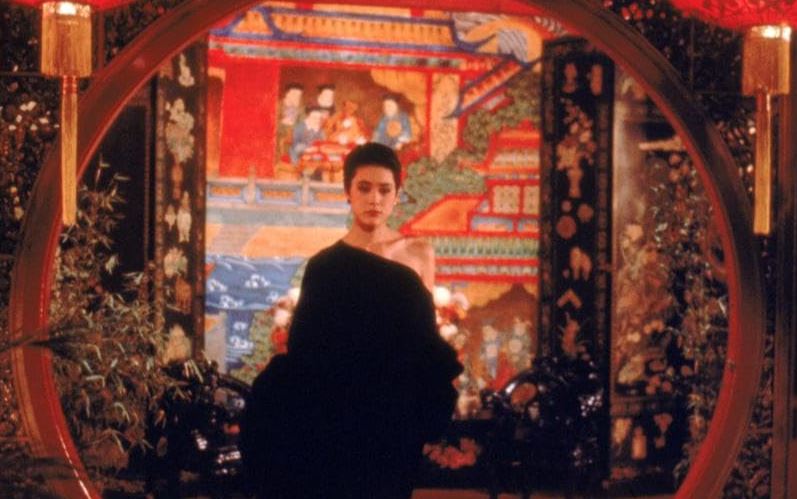
Tzu is one of Dragon’s delights. Apparently the only TV journalist in Chinatown with a mic, she gives some of the flattest, inane on-camera deliveries I’ve ever heard. Listen to this analogy about Chinatown: “There are those that liken Chinatown to a skating pond.” No, there aren’t, Ms Tzu, but let’s see where you’re going. “On the surface we see a lovely picture postcard landscape of snowflakes and skaters, but underneath the cannibal fish: the gangs.” What? “The sharks: those who control the gangs. And the whales: the big bosses, all move in deadly swarms.” Terrible, that’s a truly terrible analogy. Whales don’t live in ponds. Neither do sharks. And fish don’t bloody swarm, girl.
Nevertheless, Stanley isn’t put off by her lame journalistic guff, even when she piously insists the press can’t be turned into an undercover cop. “I am not a crusader,” she tells him. “I am a reporter.” Stanley retorts: “You’re an actress”, a most generous description, given Ariane’s amusingly hopeless performance throughout. Of course, this cat and dog pair ends up in bed, even though he labels her a ‘vampire’, tells her he hates her, and insists the media destroys more people in America than booze and drugs. For her part she calls him a ‘crackpot racist’ and repeatedly slaps his face in the moments before he pulls her top off. About ten minutes later says she loves him.
Only in the movies, as they say.
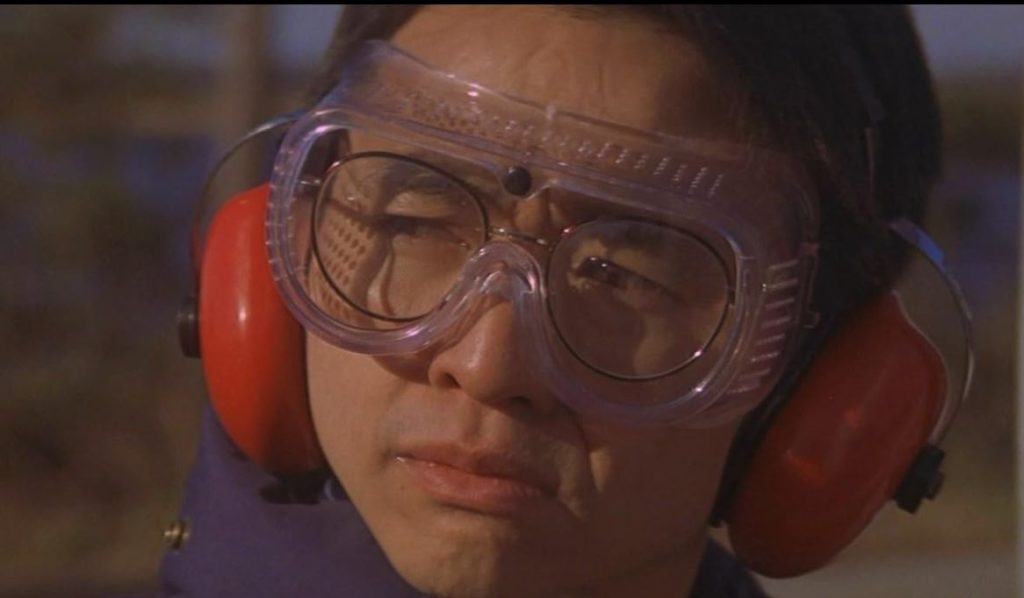
Stanley doesn’t just use Tzu in his war against Chinatown. He also fishes out Herbert Kwong (Dun), a young, bespectacled, first-time undercover cop from the police academy. Like a Dirty Harry partner or a Paul Kersey love interest, you know this weedy, earnest dude sure ain’t gonna last long. Stanley, of course, treats him like a slave, eventually leading Kwong to stand up for himself while underlining China’s contribution to American prosperity. “When your ancestors were living in caves in Poland, the Chinese were sailing their ships across the Pacific,” he tells Stanley, as if reading from a history book. “We were traders, shipbuilders, explorers. We taught you agriculture. We gave you the orange, the irrigation system.” Christ, does anyone actually talk like this? “We dug your gold and silver. We taught you to fish the Pacific.” Hang on, he’s still going as Stanley looks at his feet, trying to be ashamed of America’s treatment of immigrants. “And still we were barred from American citizenship until 1943!”
When not being bored stupid by Kwong’s pro-Chinese rhetoric, Stanley focuses his clean-up campaign on bringing down Chinatown’s Joey Tai (the charismatic Lone), a man not above carting around a severed head. He’s the Chinese mafia’s rising star and ‘one silky sonuvabitch’, combining good looks and impeccable suits with treachery and ruthlessness. He’s also savvy enough to use Tzu as well, complaining on camera of the ‘consistent discrimination against the Chinese in this country’ while bemoaning the media painting a ‘sinister Charlie Chan image’. In private, though, he’s happy to refer to ‘white devils’ which, I believe, is a wee bit racist.
Ah, racism. I guess I’d better have a go at dealing with this major gripe against Cimino’s ugly baby. Frankly, Dragon strikes me as more ageist than racist. The Chinese young, both male and female, are persistently portrayed as out of control and happy to kill whites and their own breed alike. Or as one elderly Chinese worker (who’s been plugging away in a soybean basement for forty years) says: “Everything change. Young people, no respect. Steal, shoot, kill, like white man. Chinese man not afraid to work hard.” Yes, the whites use plenty of cracks about ‘yellow niggers’ and ‘Chinks’ but this doesn’t make the film racist. Such an attitude merely reflects on the characters saying it, not the writer or director. Critics would be on surer ground if Dragon depicted all Chinese as scum and all whites as saintly, but Tzu and Kwong show otherwise while our main man (the spare ribs-loving Stanley) is clearly presented as damaged goods. In short, Dragon is not the oriental version of The Eternal Jew. Apart from that, the Chinese come out with a fair few racial slurs themselves. At the end of the day they’re not portrayed any differently to Italian-Americans in the Godfather flicks, sitting around smoking heavily, having powwows about the best way forward and blowing the brains out of anyone that gets in their way.
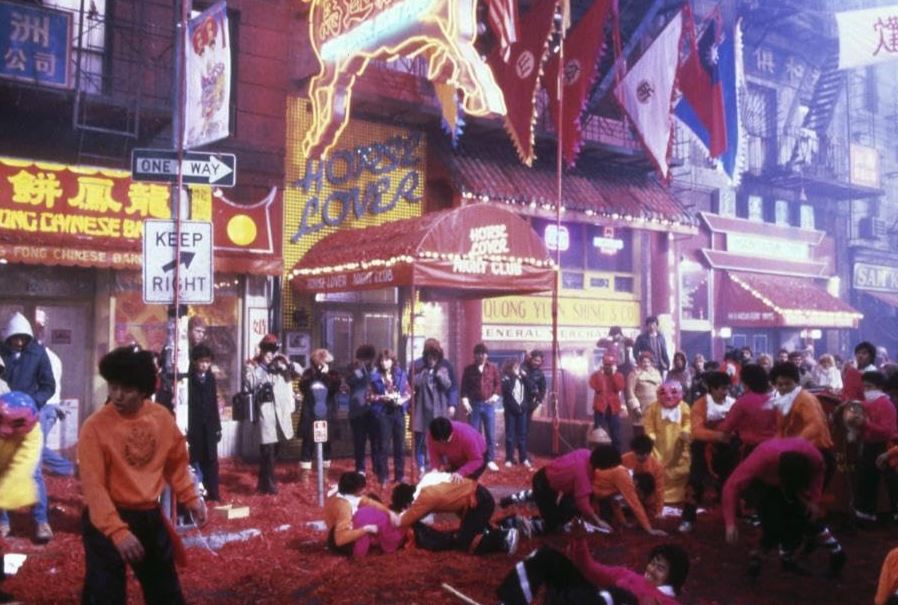
However, back in the day no one wanted to hear Cimino’s attempts at a defense. It was too much fun continuing to kick the shit out of the guy. Dragon is far from perfect, often suffering from some bloody obvious writing. I’ve already outlined the history lessons (‘We gave you the orange’), but Dragon is also an early example of Stone’s obsession with Nam. Just listen to Stanley protesting after his bosses tell him to tread more lightly: “This is a fucking war and I’m not gonna lose it. Not this one. Not over politics. It’s always fucking politics. This is Vietnam all over again.”
Then there are the plain odd scenes like Stanley’s boss following him down the street and shouting at no one in particular: “He’s a great cop and he won’t stop!” And why does Stanley employ a couple of nuns to electronically eavesdrop on the gangsters?
No matter, because Dragon zips along and contains plenty of well-staged mayhem, such as a Scarface-style machinegun attack on a Chinese restaurant. I enjoyed it, even if its final couple of minutes are bloody terrible.
Leave a Reply